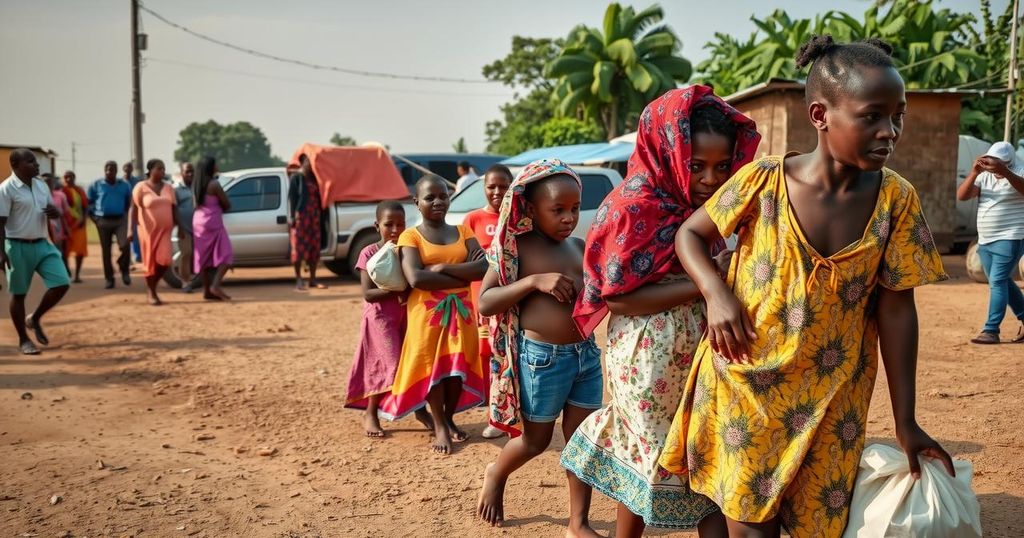Manase Madia, a Mozambican, fled to Malawi along with his family to escape post-election violence that claimed his business and safety. About 13,000 refugees have crossed into Malawi, prompting a humanitarian response amidst an ongoing food crisis. Local organizations and the government are striving to aid both the refugees and the host communities
On a serene Saturday afternoon, Manase Madia, a 50-year-old Mozambican, reflects on his family’s plight after witnessing devastating violence in Mozambique. Recently, he has experienced the loss of his shop and the destruction of his community as post-election unrest has caused fear among families, including his own. Manase is among approximately 13,000 individuals who have fled to Malawi over the past two months due to the violent aftermath of the October elections, mirroring earlier historical refugee movements during Mozambique’s civil war.
The turmoil began following the announcement of Daniel Chapo as the victor in the elections, leading to widespread protests and violence. Initially targeting political party members, these acts soon escalated into criminality, where marauding gangs began looting and exacerbating fear among wealthier citizens. Manase himself had to make a harrowing escape, leaving his hometown of Morrumbala under the cover of night, fearing for his life and that of his family.
As Malawi receives a growing number of refugees, the local population, despite facing their own food shortages, has exhibited commendable hospitality. The Malawian government has declared a state of disaster and is working alongside organizations such as the United Nations High Commissioner for Refugees (UNHCR) to address the crisis. They are setting up temporary shelters while ensuring that basic hygiene and health services are made available to the newly arrived.
In relief centers, efforts are underway to reunite families torn apart by violence. Judith Fukizi from the Red Cross highlights the distressing situation of children separated from parents, further illustrating the emotional toll these conflicts impose.
Local government officials are collaboratively assessing the needs of these refugees, working to address pressing health concerns, including malnutrition among children. The government is simultaneously appealing for support to meet the increasing challenges posed by this influx, which adds strain to local resources.
Mike Dansa, chair of Nsanje civil society organizations, emphasizes the necessity for a comprehensive approach to aid both refugees and the local populace, thereby reinforcing the importance of sustainable humanitarian efforts in such crises. This event accentuates the critical need for enhanced humanitarian systems and resources that acknowledge the complex issues following displacement.
The article discusses a humanitarian crisis in Malawi due to the influx of approximately 13,000 refugees from Mozambique resulting from violence following the political elections in October 2023. The unrest in Mozambique has its roots in the disputed election results, leading to widespread looting and fear among citizens. Historically, Malawi has been a haven for refugees, recalling a similar situation during Mozambique’s civil war in the 1980s and 1990s. The Malawian government and various aid organizations are currently working to provide support and shelter for these new arrivals while simultaneously addressing the needs of the local population facing food shortages.
In summary, the ongoing violence in Mozambique has led to a significant influx of refugees seeking safety in Malawi. Despite Malawi’s own challenges, the government’s response, along with support from humanitarian organizations, aims to provide necessary aid and shelter. The situation underscores the critical need for sustained support to both the displaced individuals and the local communities affected by this crisis.
Original Source: www.theguardian.com






